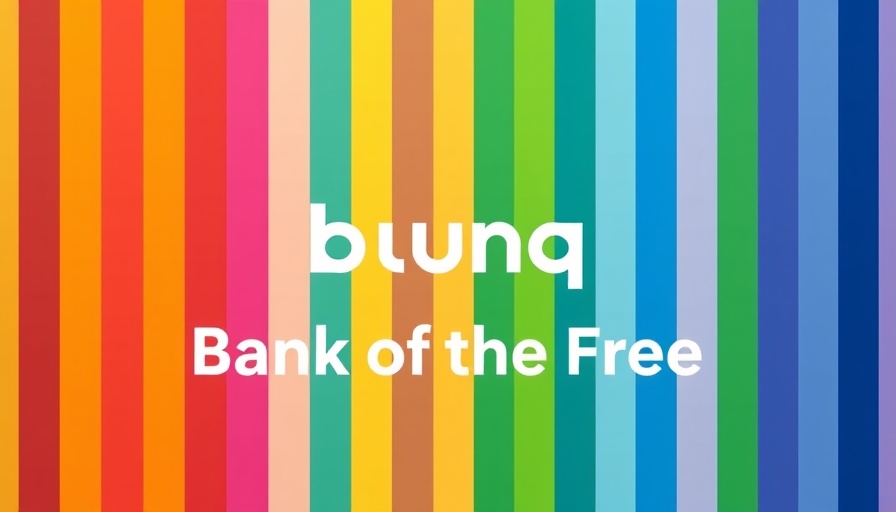
Understanding Bunq's Recent Fine: A Call for Better Anti-Money Laundering Practices
Internetbank Bunq has found itself under scrutiny after being hit with a hefty €2.6 million fine by De Nederlandsche Bank (DNB) for inadequate anti-money laundering (AML) controls between January 2021 and May 2022. This regulatory action highlights not only the challenges faced by banks in maintaining robust anti-money laundering frameworks but also raises important questions about customer protection and financial ethics.
The Core of the Issue: What Went Wrong?
The DNB's investigation pinpointed four customers who engaged in suspicious transactions. Although Bunq promptly reported these clients to the Financial Intelligence Unit (FIU), the bank failed to relay all corresponding suspicious transactions effectively. This lapse in communication and reporting suggests that Bunq's systems were not sufficiently equipped to detect and prevent potential money laundering activities.
Not Just a Bunq Problem: Dutch Banks Under Fire
Bunq is not alone in facing regulatory challenges related to anti-money laundering. Many Dutch banks have been in similar positions over the years. For instance, ING Nederland paid a staggering €775 million in 2018 for past failures in money laundering prevention. Likewise, ABN Amro faced a penalty of €480 million in 2021. Even Rabobank refuses to settle and could find itself in court over similar allegations. This pattern makes it evident that the issue of inadequate controls is a systemic one that calls for significant reform across the industry.
Bunq's Defense: Striving for Improvement
In light of the fine, Bunq's representative emphasized their commitment to their responsibilities as gatekeepers within the financial system. They declared their use of advanced technologies to enhance their services continually, a move aiming to align with best practices in AML compliance. Additionally, Bunq has expressed intentions to challenge the fine legally, arguing that they have been proactive in mitigating risks.
Discrimination and Strained Relationships
Following the increasing pressure from stringent AML laws, there is a growing concern regarding bank discrimination. In a recent development, Finance Minister Heinen acknowledged that some anti-money laundering regulations have led to unjust treatment for specific customer segments. This discrimination often manifests in challenges for particular groups trying to open bank accounts or transfer money. For instance, as a response to their practices, ING publicly apologized and initiated reforms aimed at rectifying these discriminatory issues.
Future Trends: What Lies Ahead for Dutch Banking?
The recent developments in the Dutch banking landscape signify a potential shift towards stricter regulatory compliance and oversight. As the DNB intensifies scrutiny over banks' anti-money laundering measures, financial institutions may be compelled to innovate their approaches further. With the rise of AI and data analytics in fraud detection, the banks that can successfully balance technological advancement with regulatory compliance will likely lead the market.
Why Should You Care?
The implications of the Bunq case echo beyond the immediate financial penalty. As consumers, understanding how banks manage our finances and the effectiveness of their compliance can influence our trust and choices as bank customers. A banking environment where customer needs are respected, and financial ethics are maintained is crucial for fostering confidence in the financial system generally.
Call to Action: Stay Informed and Engaged
As these events unfold, it is vital to stay informed about how your financial institution is performing in compliance and customer service. Take the necessary steps to evaluate your bank and ensure that it aligns with your values, particularly when it comes to ethical practices. Demand transparency and accountability from your financial service providers as our collective voices can influence positive change.
 Rij toevoegen
Rij toevoegen






Write A Comment